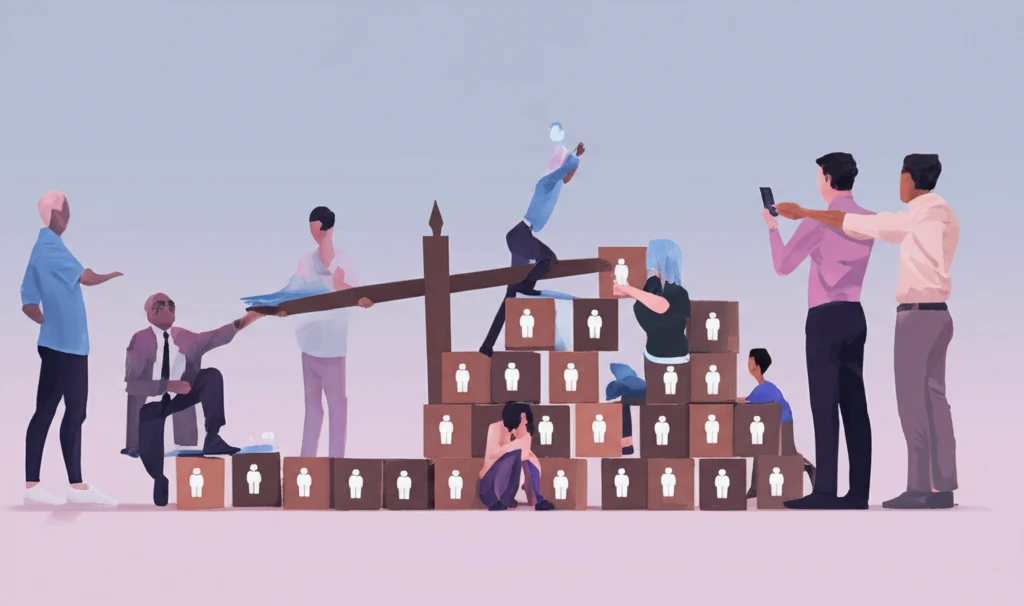
Decoding Group Decisions: How Rational Choice Theory Impacts Social Well-being
"Explore the strengths and limitations of rational choice theory and its crucial role in shaping fairer and more effective social systems."
Have you ever wondered how groups make decisions, especially when those decisions affect everyone's well-being? Rational choice theory offers a framework for understanding these complex dynamics. It assumes that individuals act in their best self-interest, but what happens when these individual choices come together to form a collective decision? Understanding this interplay is crucial for designing social systems that are both fair and effective.
Rational choice theory, at its core, studies how individuals make decisions when faced with different options. It suggests that people weigh the costs and benefits of each alternative and then choose the one that maximizes their personal utility or satisfaction. This theory has been widely applied in economics, political science, and sociology to explain various phenomena, from consumer behavior to voting patterns.
However, when we move from individual decisions to group decisions, the picture becomes much more complicated. Social choice theory examines how individual preferences are aggregated to form a collective decision. The challenge lies in finding a method that accurately reflects the will of the group while also satisfying certain fairness criteria. This is where the concept of 'rationalizability' becomes important. It asks whether a group decision can be justified by a set of underlying rational preferences.
Understanding Rationality in Social Choices

In social choice theory, a key concept is whether collective decisions can be considered ‘rational.’ This doesn't mean everyone agrees, but rather if the decision-making process aligns with a coherent set of preferences. If a group consistently chooses one option over another, can we assume there’s a rational basis for that choice? This is more complex than it seems.
- The Challenge of Aggregation: How can individual preferences be combined to reflect the collective will?
- Arrow's Impossibility Theorem: Highlights the difficulty in satisfying all fairness criteria in social choice.
- Rationalizability: Determining if group decisions can be justified by underlying rational preferences.
Why Local Rationalizability Matters
Local rationalizability offers a more nuanced understanding of how groups make decisions. It allows for the possibility that preferences are not fixed but rather adapt to the context. This perspective has implications for how we design voting systems, public policies, and other social mechanisms. By understanding the conditions under which collective decisions can be considered 'locally rational,' we can create systems that are more responsive to the needs and desires of the people they serve.
